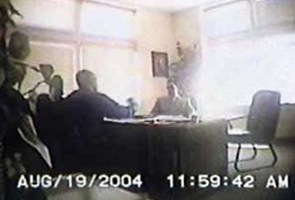Celebrating Women Special Agents
Part 6: Working Undercover

They’ve played the part of everyone from a college student to a CEO…created and run entire fictitious companies…attended motorcycle gang weddings…even been “arrested” for the good of the cause.
In the four decades since women have served as FBI agents, they’ve taken on one of the most difficult—yet vitally important—roles in the Bureau: going undercover.
Our early female pioneers had a lot of fascinating stories to tell about this work—how dangerous it was, how they gained the trust of criminals, how they used their specialized language and other skills.
Recently, we talked with three current female agents about their undercover experiences. Despite the challenges of the job, all are passionate about their work and believe that women bring unique perspectives that enhance their effectiveness on the job.
At a Glance: The FBI’s Undercover Program
 ABSCAM…Donnie Brasco/Organize Crime…Operation Greylord…Pizza Connection…Tennessee Waltz.
ABSCAM…Donnie Brasco/Organize Crime…Operation Greylord…Pizza Connection…Tennessee Waltz.
These well-known and highly successful undercover operations received a great deal of attention—and scrutiny—in their day, but in the end, each of them resulted in numerous convictions and a wealth of intelligence on how criminal enterprises operated.
The use of undercover operations continues to be an essential part of detecting, preventing, and prosecuting crime—allowing us to penetrate the veil of secrecy that surrounds criminal groups engaging in financial crime, public corruption, organized crime, cyber crime, and other illegal activity. Undercover operations are used very effectively in national security investigations as well.
All of our undercover operations are conducted in strict accordance with FBI and Department of Justice administrative and operational policies and guidelines. We’re also subject to congressional oversight.
In order to identify individuals with the ability to perform safely and effectively in an undercover capacity, agents interested in the undercover program must first undergo an exhaustive assessment and certification process—which includes an intensive training curriculum—before being selected.
Because of obvious sensitivities, we’re keeping the identities of these agents confidential.
Q. What types of cases have you been involved in, and what types of roles have you played?
Agent #2: “I’ve worked cases involving outlaw motorcycle gangs, espionage, and public corruption, among others. I’ve had roles where I was the primary undercover, the secondary undercover, and even had cameo undercover appearances in other undercover operations.”
Agent #3: “A variety of cases and roles…for instance, in health care fraud, a patient seeking prescription medicine; in mortgage fraud, a wealthy investor; in public corruption, a CEO; and in organized crime, a business woman in one case and a girlfriend to a male undercover agent in another.”
Q. What qualities do you think undercover agents need to be successful?
Agent #1: “I think the FBI needs a variety of people with different qualities for undercover work…a loner would be a great fit for some cases, while a gregarious, outgoing person would be perfect for another.”
Agent #3: “Both life and job experiences contribute to being a successful undercover agent—being a team player, having a good work ethic and a sense of humor, staying flexible, and exercising good judgment and common sense. I also think that the many roles we play in real life—wife, mother, girlfriend, etc.—help us get close to our subjects.”
Q. Have the criminals in your investigations ever said anything after they learned who you really were?
Agent #1: “Yes. Many times, criminals offer us up (as crooked colleagues) when they’re trying to cooperate in post-arrest interviews. It’s pretty interesting to see how convinced they are that we’re really criminals, too!”
Agent #2: “I think the words that sum it up best are, ‘No way, I don’t believe it!’ That makes me feel like I’ve done my job well.”
Q. What’s your most memorable experience while serving undercover?
Agent #1: “It’s difficult to pick one. I’ve listened to domestic extremists talk about how corrupt the U.S. is; pretended to befriend a dirty drug-dealing cop; been arrested and jailed (twice!); attended high-end poker games; and paid kickbacks to corrupt doctors.”
Agent #2: “During a health care fraud case, a target doctor was showing me around his office and offered me free Botox injections in my forehead. I didn’t want to make him suspicious, so I got the injections. I had to do a lot of paperwork explaining that one!”
“These women, and others like them,” says the agent who currently oversees the Bureau’s Undercover and Sensitive Operations Unit, “are a huge asset…many past and ongoing undercover operations owe their successes to the unique perspectives, expertise, and diversity female undercover personnel regularly provide in this elite and demanding area.”



